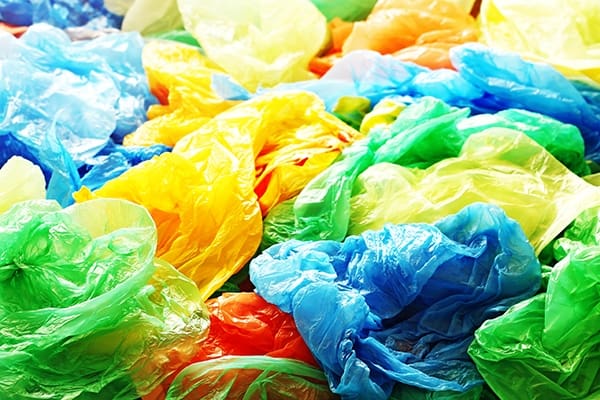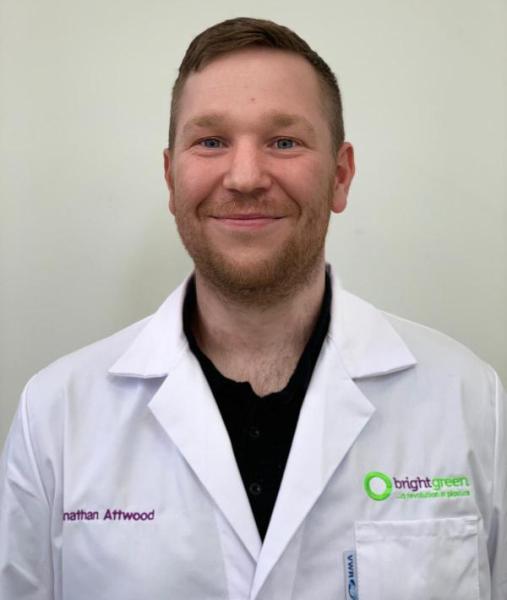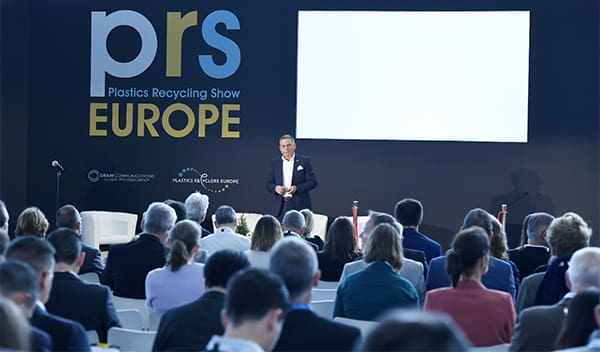
Bright Green Plastics has Soft Polymer Reprocessing in the Bag
Yorkshire-based plastic recycling firm Bright Green Plastics has developed groundbreaking new technology to reprocess notoriously ‘difficult to recycle’ soft plastics, such as carrier bags.
For some time, supermarkets have provided facilities to collect customers’ used ‘soft’ plastics for recycling. This includes carrier bags, bread packaging, breakfast cereal liners, bubble wrap, frozen food bags, toilet roll wrapping and even clean cling film.
This is great for customers wanting to dispose of their flexible plastics responsibly, particularly as most local councils will not accept this type of waste, but not so good for the supermarkets wishing to pass it on for recycling. With historical high costs and intensive labour involved in segregating and reprocessing the materials, the recycling industry has generally placed soft plastics in the “not easy to recycle” category and has heavily relied on sending it overseas.
Bright Green Plastics, which reprocesses over 40,000 tonnes of rigid plastics for packaging and product manufacturing each year, has developed the technology to recycle flexible plastic for it to be put back into packaging.
In developing the technology over the past year, the research and development team at Bright Green has been meticulously characterising and testing flexible plastic samples from supermarkets, like plastic bags, bread bags, salad bags, cheese and delivery bags. During this process, the team has analysed a wide variety of waste polymers to inform the development of a unique process that allows the firm to granulate and blend soft plastics with existing feedstocks.
The technology has been designed to bypass the expensive, labour intensive and highly unfeasible sorting of flexible plastics, where typical near-infrared spectroscopic scanners are ineffective due to the lightweight and ‘floatiness’ of the material.
The firm, which was named Plastic Recycling Business of the Year and at the Awards for Excellence in Recycling and Waste Management 2021, will begin testing the industry-changing technology throughout November 2021, with a view to introducing soft plastics to feedstocks from early 2022.
Jonathan Attwood, Product Formulation Manager, comments: “The ultimate aim with this is to establish an additional feedstock and avoid perfectly good soft plastics being wasted. This traceable process occurs on one site within the UK, reducing the CO2 impact of sorting and shipping abroad.
“Due to the extensive R&D we have completed in the last 12 months, we are confident that by January 2022, we will be able to offer a UK solution for the recycling of flexible packaging, albeit in low volume at the beginning. The scalability of this project is based on existing technology and equipment; therefore, we are able to upscale this process based on market demand.”

Managing Director Steve Spencer adds: “We have found a way to circumnavigate the restrictive sorting and processing costs that was, frustratingly, blocking progress in the recycling of soft plastics – which, let’s face it, makes up a huge percentage of plastic waste in this country.
“We’re proud to be known as innovators in our industry, and this is just the latest groundbreaking development from Bright Green Plastics as we continue to drive change and growth in UK plastic reprocessing.”

Bright Green Plastics is working in partnership with Ecosurety to ensure compliance at every stage of the development and introduction of this new technology. Click here to read more news from Bright Green Plastics.

Bright Green Plastics
01977 604080
Website
Email





